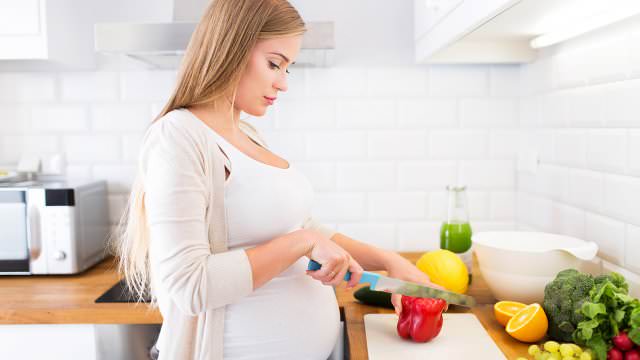What to eat when you’re pregnant is a topic of major consideration for most mothers-to-be. It is also a major talking point for a lot of people you will meet. With so many different diets, fads, and old wives’ tales flying around, it can be difficult to know what to do. This can place a lot of pressure on mothers who simply want to ensure that their child is as healthy as possible. Although research is constantly advancing in this area and there is an endless stream of great new innovations to help have a healthy, comfortable pregnancy, we are going to look at some of the major dietary requirements that form the foundation of a healthy pregnancy diet.
Eating for Two
The first thing we should address is one of the oldest adages: eating for two. While few people take this literally, most pregnant women do fall into the trap of believing that being pregnant means you are expected to eat considerably more. In reality, you should only be eating about an extra 300 calories a day, which equates to roughly one muffin. The idea of eating more because you’re growing another person is misleading, and overeating can pose long term health risks to both you and your child, and even makes it more likely that you will need a c-section.
Nutrients
A balanced diet is a crucial factor in anyone’s health, whether they are pregnant or not. But realistically, people make more of an effort to balance their diets when they are pregnant, and there are certain nutrients that are more important than others during this time. There are six that are considered crucial for the growth and development of a healthy child.
Folic Acid: Folic acid is found in things like lentils, beans, peas, broccoli, and citrus fruit juice. It is often recommended that expectant mothers take a folic acid supplement, as most women don’t take in enough through their diet alone.
Iron: Iron is famously found in various types of meat, especially red meat, but can also be found in dark green leaf vegetables, which are often also high in folic acid. Spinach is an example of a food that is high in both iron and folic acid.
Calcium: Calcium can also be found in green leaf vegetables, as well as broccoli, green beans, almonds, and so on. Most people will get the majority of their calcium intake from milk, but during pregnancy you should stick to milk that has been pasteurised.
Vitamin D: Vitamin D is mainly absorbed through our skin from the suns rays, but if it’s winter and you live in Ireland, you may want to find ways to supplement that. Cod liver oil is the best way to get Vitamin D, but you can also get it from eggs, pork, tofu, cereal grains, mushrooms, and fish.
DHA: Docosahexaenoic acid is one of the lesser known nutrients, but it is important for a healthy pregnancy. It is most commonly found in oily fish, such as sardines, salmon, trout, mackerel, and herring. It is also found in nuts, seeds, and again, dark green leaf vegetables.
Iodine: Iodine is very important for a healthy pregnancy, and one that is easy to miss in your everyday diet. Cranberries, organic strawberries, seaweed, cod, turkey, tuna, and eggs are all good sources of iodine.
What to Avoid
While there are always the obvious things to avoid while pregnant, such as drinking, smoking, and eating sushi, there are some that are not quite so obvious too.
Tuna: While tuna can be good for you and your baby in other ways, it contains mercury. While this is fine in moderation, you should limit the amount of tuna you eat.
Rare meat: It may be how you like your steak, but rare meats carry the risk of becoming contaminated with bacteria such as coliform, toxoplasmosis, or salmonella.
Soft cheeses: As stated above, you should only consume dairy that has been pasteurised. This means that most soft cheeses are off limits, as they could carry a bacterium known as listeria, which can lead to miscarriages.
Deli meat: Listeria is also commonly found in meat that is used in delis, so you should steer clear of them as much as you can.
It is up to you to decide what diet plan suits you best, based on what you like to eat and what your cravings are for, but the points outlined here today should always be at the forefront of your mind when you are planning a pregnancy diet.















